This interview is the first in a series of other interviews, within the framework of our efforts to archive the events of this region and understand the nature of the medical profession in the past. We hope it will play a role.
The first part of the interview is in narrative form, as an introduction to the other two or three parts that will be published in question-and-answer format in the coming weeks.
On November 24, 1941, Dr. Nawzad Salah Rafat was born in the Goyija neighborhood of Sulaymaniyah city. At that time, their house was located where the current university bazaar of Sulaymaniyah city is, opposite the Central Hospital. He completed his primary education at Faisal School. Later, he studied middle school at Sulaymaniyah Boys Center, which was then located near the Khanqah. Then he completed his preparatory stage at Sulaymaniyah Boys Preparatory School and in 1961 went to the College of Medicine at the University of Baghdad.
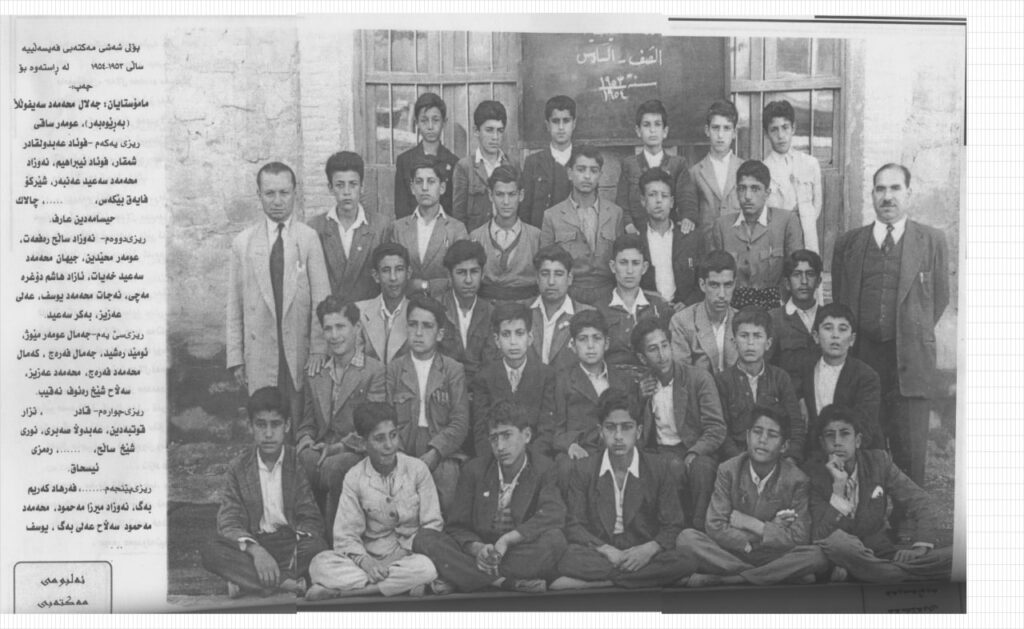
In 1961, which coincided with the outbreak of the September Revolution, he also entered political activity, specifically with the Kurdistan Democratic Party. In 1963, when he was in the second year of medical college and following the coup of that year, he was imprisoned for several months in the (National Guard) prisons. In 1967, he completed medical college at the University of Baghdad.
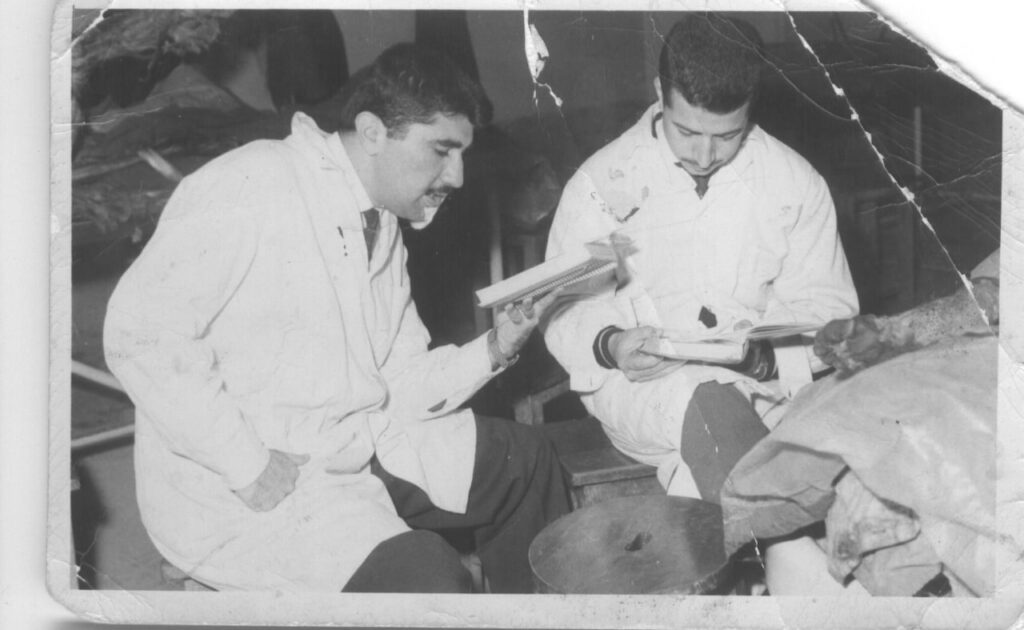
Dr. Nawzad remembers the names of those Kurdish students who were with him at the College of Medicine at the University of Baghdad during those years, who were: Anwar Haji Ali Kolek, Muhammad Sarkat Barzanji, Mustafa Karim Barzanji, Sharafadin Muhyiddin, Ali Ihsan Omar Naji, Abdul Hamid Ibrahim, Hamid Hawezi, Jian Abdul Rahman, Pari Majid, Parwin Baltash, Atiya Salhi, Muhsin Zangana, and Diler Nuri. All these students were in college; they entered that college in different years, but they all completed college in the same year and together. Unfortunately, some of them have passed away and we have left them behind.
After completing medical college, according to the employment law of Iraq at that time, female doctors were appointed as doctors, but male doctors were connected to military service for a specified period. In that year, due to the large number of college graduates, only the two colleges of medicine and engineering were connected to military service, while other colleges were exempted from military service.
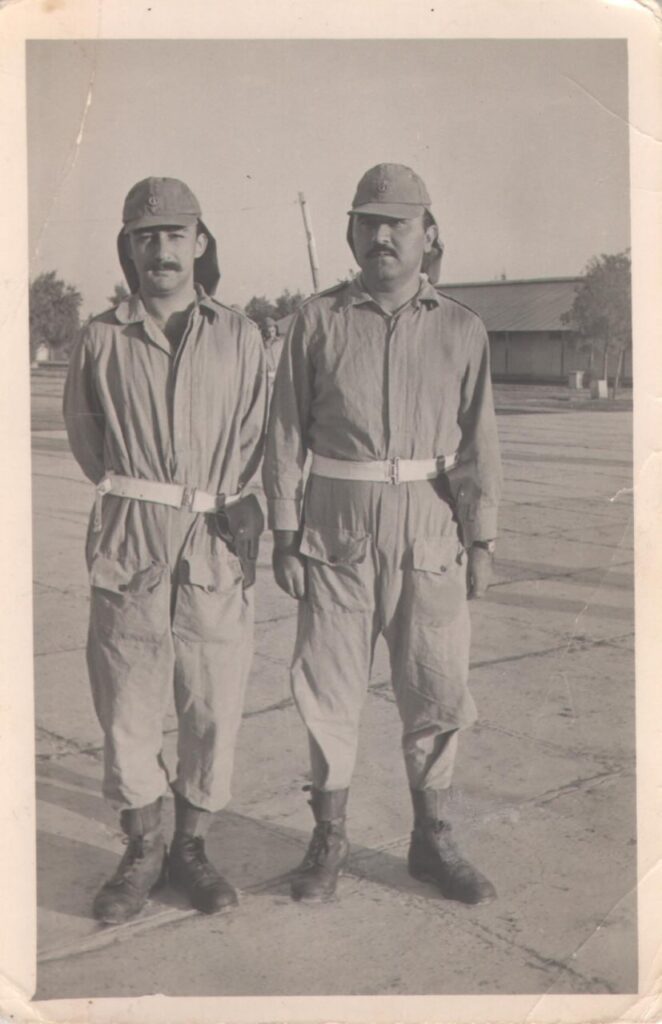
In February 1968, they became medical officers. Dr. Nawzad was assigned to the Iraqi Air Force at the Kirkuk Air Base. On the first day they joined the Kirkuk Air Base, the base officers there, as a kind of joke with them, took Dr. Nawzad's colleagues to participate in a fighter aircraft demonstration. During the demonstration and also after it, due to the effect of the demonstration, it caused their health condition to deteriorate, resulting in nausea and vomiting. The officers enjoyed this situation. Dr. Nawzad's good fortune was that he joined the air base on the second day, so when Dr. Nawzad came to join his military service period the next day, he became aware of this through his colleagues. He used a pill for nausea and safely escaped this joke. After joining the Kirkuk Air Base, because he was Kurdish, after several months he was transferred to the Habbaniya Air Base.
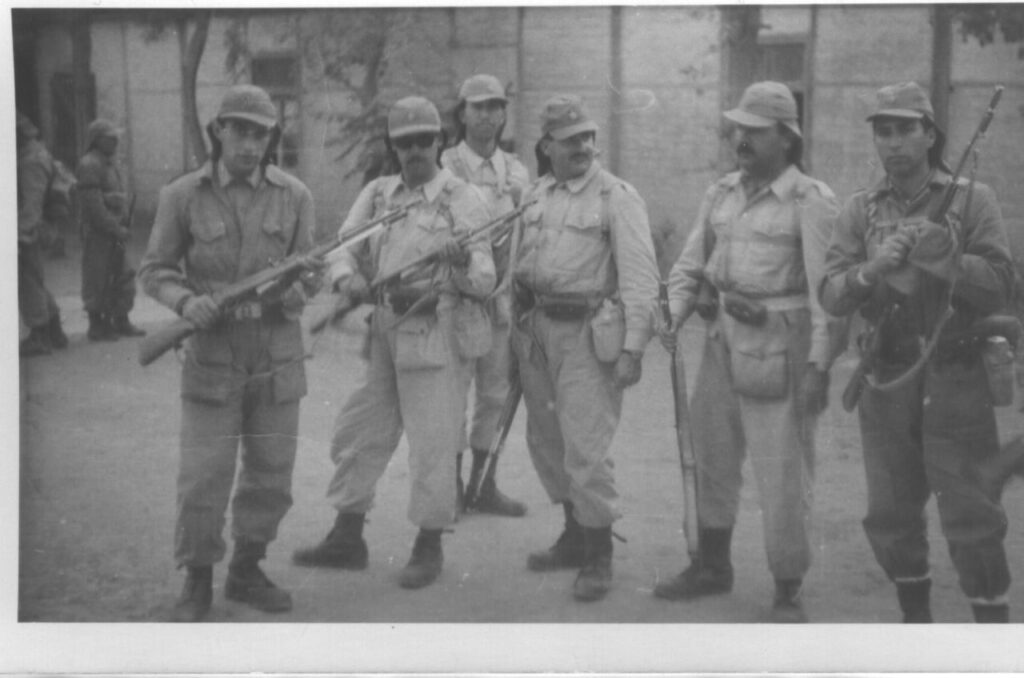
On the morning of July 17, 1968, near Nisour field, while they were on their way to Habbaniya military base, two people in civilian clothes and armed came onto the military bus belonging to Habbaniya military base and told them that Abu Qais was finished and had been sent out. Few of them knew that Abu Qais referred to Abdul Rahman Arif, who was president at that time. Later, officially, at six o'clock in the morning, while they were still in the bus, they heard an announcement on the radio about the coup. They immediately knew that a coup was under the control of the Baathists. After they arrived in Habbaniya, they were informed that they must remain in their positions. That was why they couldn't leave for several days.
After the coup, they initially appointed Abdul Razzaq al-Naif as Prime Minister of Iraq, and later in the same month on July 30, another coup occurred, and Abdul Razzaq al-Naif was removed from the position of Prime Minister, and the Baathists completely came to power.
During this coup, the political school wing of the Kurdistan Democratic Party, which was headed by Brahim Ahmad and Mam Jalal, had good relations with the government, so they had a minister in the government at that time, who was Taha Muhyiddin Ma'ruf.
"During military service," Dr. Nawzad recounts, "I counted day after day for my completion of military service." In February 1969, they were expecting discharge from military service as the 22nd batch. Then an order came for the discharge of all military reservists of the 22nd batch except for the five doctors who were working at air bases. Later it became clear to us that due to the late enrollment of later medical college graduates, they had kept us, but after a few days we were also discharged.
After completing the reserve military service period, on the same day they went to the Iraqi Ministry of Health and were distributed as resident doctors according to the law. In the selections, he was assigned to Karama Hospital in Baghdad city. The first three months he worked in the internal medicine department (according to the law of that time, resident doctors rotated departments every 3 months between internal medicine, surgery, obstetrics and gynecology, and others). But due to Dr. Nawzad's great love for surgical departments, he spent 9 months in surgical departments.
The working schedule of resident doctors at that time: during a week they only had 12 hours to leave the hospitals, meaning for six and a half days they remained in the hospitals for 24 hours, for a full year without regard to holidays and official rest days.
During the first year, their salary was 57 dinars; their accommodation was very good as they were in their own private rooms, with one or two doctors per room, and they had their own private cook. Dr. Nawzad, due to his activity, twice became head of doctors at Karama Hospital, a position that was often given to senior resident doctors.
During his first year, he performed surgeries, some under the supervision of Dr. Ali al-Ramah. After completing the residency period, the next day they contacted the Ministry of Health for redistribution to districts and sub-districts throughout Iraq.
The distribution of districts and sub-districts was based on doctors' grades. Among the areas that remained for selection, Dr. Nawzad voluntarily chose Mandali district. The reason behind Dr. Nawzad's choice of Mandali district was due to a Kurdish young man from Mandali who had worked with Dr. Nawzad at (Noor newspaper) named Salah Abdul Jabbar, who was from Mandali. He had spoken much about Mandali before, saying that Mandali was a border district of Iraq with an unpleasant climate, which was the reason for its residents' lack of access to many health services; it had a mixed ethnic population and Kurds there were in an unequal situation - all these were reasons for choosing Mandali. At that time, there was no direct bus or public transport from Baghdad to Mandali, but rather from Baghdad to Baqubah then to Mandali. The road from Baqubah to Mandali was partly paved and then dirt, passing through the desert. Whenever it rained in winter, the road became muddy.
In Mandali there was one hospital and one health center. Each was served by one doctor; at the hospital there was a doctor named Abdul Bari who was from Basra city; the health center doctor had been transferred, so Dr. Nawzad began working in place of the health center doctor. Then, due to Dr. Nawzad's expertise in surgery, they began performing some minor surgeries in Mandali district. The people of Mandali were poor and were mostly engaged in gardening at that time; their products were mainly pomegranates, dates, oranges, and lemons. A week before Dr. Nawzad's arrival, the March 11 statement had been issued between the Kurds and the Iraqi government. The people of Mandali were also pleased with this statement, but the administrative authority of Mandali was in the hands of the Baath Party. Mizban Khidr Hadi, who had been a teacher by profession and was also a Baath Party official, was originally Iranian and his Arabic was not good - even when he spoke Arabic, it caused ridicule due to his poor Arabic, and he fell into attacking Kurds. The villages around Mandali, which were almost all Kurdish and from the Qaralus tribe, were later forcibly displaced and Arabs were settled in their place. While in other areas of Kurdistan there was joy and happiness due to the statement, in Mandali there was destruction and displacement.
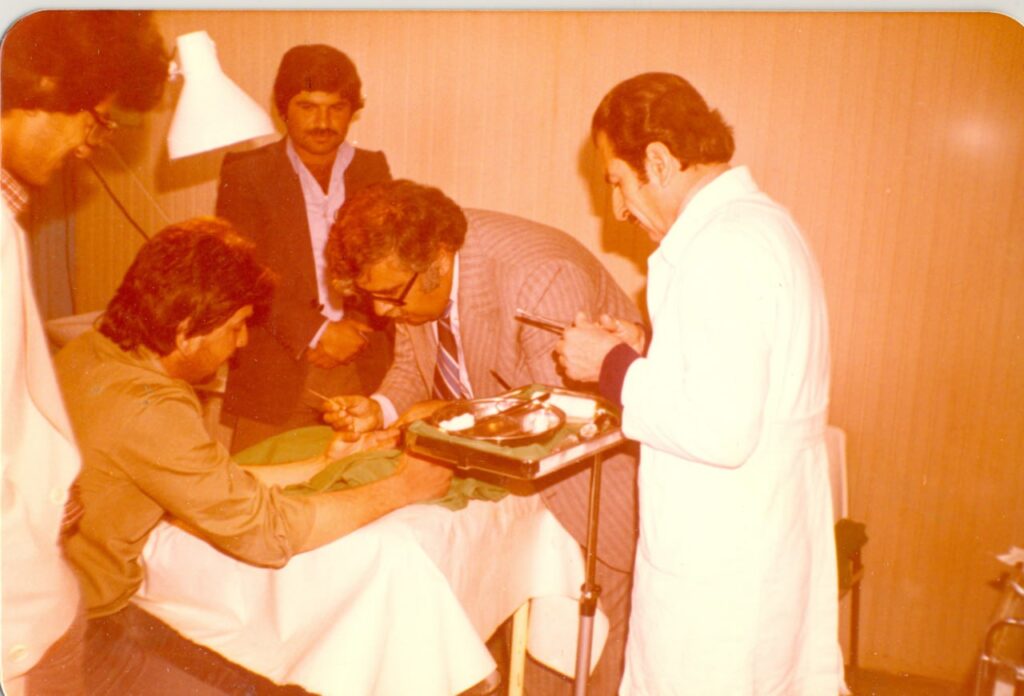
At this time, due to not renting accommodation to someone who was unmarried and single, Dr. Nawzad was forced to bring his father, mother, and both brothers from Sulaymaniyah to Mandali to live with him. In Mandali, due to Dr. Nawzad's father wearing Kurdish clothes, the authorities of that time in Mandali did not like it, but since he was from Sulaymaniyah, they overlooked it - their intention was more to prevent the people of Mandali from practicing Kurdish symbols. There Dr. Nawzad had his own private clinic and saw nearly 100 people in one day; medical examination cost a quarter dinar, and if an injection was included, it was half a dinar. Due to the poverty of Mandali's people, he did not take money from most of them, and they, out of respect for Dr. Nawzad, whenever he bought something from the market, no one took money from him. Due to Dr. Nawzad's self-promotion in Mandali, it became a reason for Dr. Abdul Bari to request a transfer and go to Basra city, so he also became director of Mandali General Hospital. Dr. Nawzad served in Mandali city for two years and nine months.
Prepared by: San Khasraw, Dyari Abubakar
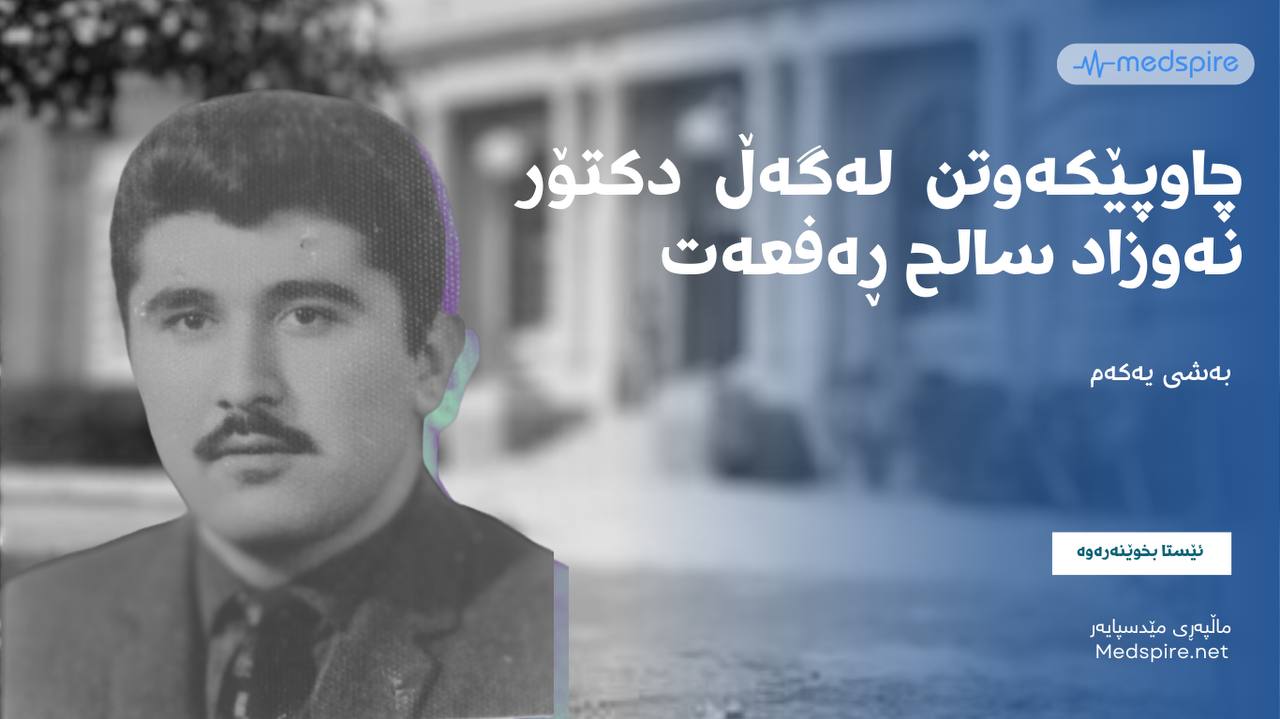
Leave a Reply